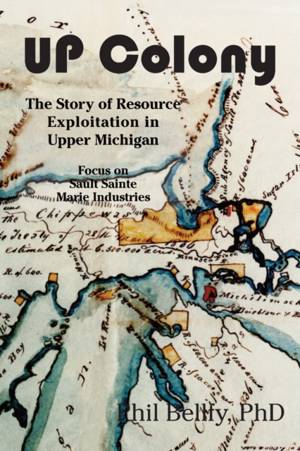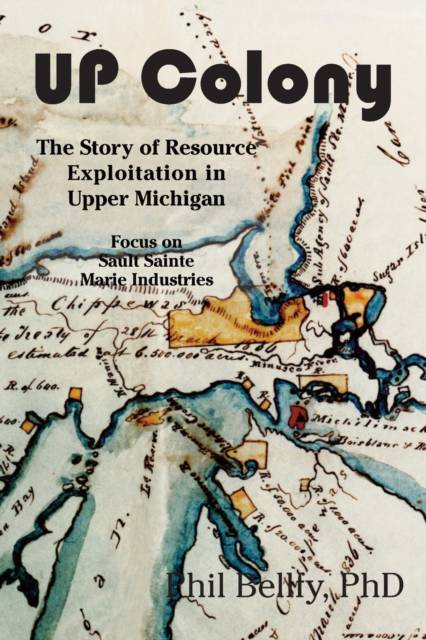
- Retrait gratuit dans votre magasin Club
- 7.000.000 titres dans notre catalogue
- Payer en toute sécurité
- Toujours un magasin près de chez vous
- Retrait gratuit dans votre magasin Club
- 7.000.0000 titres dans notre catalogue
- Payer en toute sécurité
- Toujours un magasin près de chez vous
U.P. Colony
The Story of Resource Exploitation in Upper Michigan -- Focus on Sault Sainte Marie Industries
Phil BellfyDescription
Winner of 2021 U.P. Notable Books Award
In the 1980s, Phil Bellfy pondered the question: Why does Sault, Ontario, appear to be so prosperous, while the "Sault" on the American side has fallen into such a deplorable state? Could the answer be that the "American side" was little more than a "resource colony"--or to use the academic jargon of "Conflict and Change" Sociology--an "Internal Colony." In UP Colony, Bellfy revisits his graduate research to update us on the state of the Sault.
The ultimate question: why has the U.P.'s vast wealth, nearly unrivaled in the whole of the United States, left the area with poverty nearly unrivaled in the whole of the United States? None of the conventional explanations from "distance to markets," to "too many people," to "disadvantageous production costs," have any credibility. Simply put: "Where did the $1.5 billion earned from copper mining, $1 billion from logging, and nearly $4 billion in iron ore go?"
To get to the bottom of these thorny questions, Bellfy looks at the possible economic pressures imposed by "external colonial powers." The pressure-points examined in this book include the presence of a complimentary economy, lopsided investment in one sector, monopoly style management, disparity of living standards, a repressive conflict-resolution system, and the progressive growth of inequality over time.
In UP Colony, Dr. Bellfy has revisited his MA thesis and brought this analysis up-to-date in conjunction with the Sault's Semisepticentennial-the 350th anniversary of its French founding in 1668.
Spécifications
Parties prenantes
- Auteur(s) :
- Editeur:
Contenu
- Nombre de pages :
- 80
- Langue:
- Anglais
Caractéristiques
- EAN:
- 9781615996063
- Date de parution :
- 01-09-21
- Format:
- Livre broché
- Format numérique:
- Trade paperback (VS)
- Dimensions :
- 156 mm x 234 mm
- Poids :
- 122 g

Les avis
Nous publions uniquement les avis qui respectent les conditions requises. Consultez nos conditions pour les avis.






